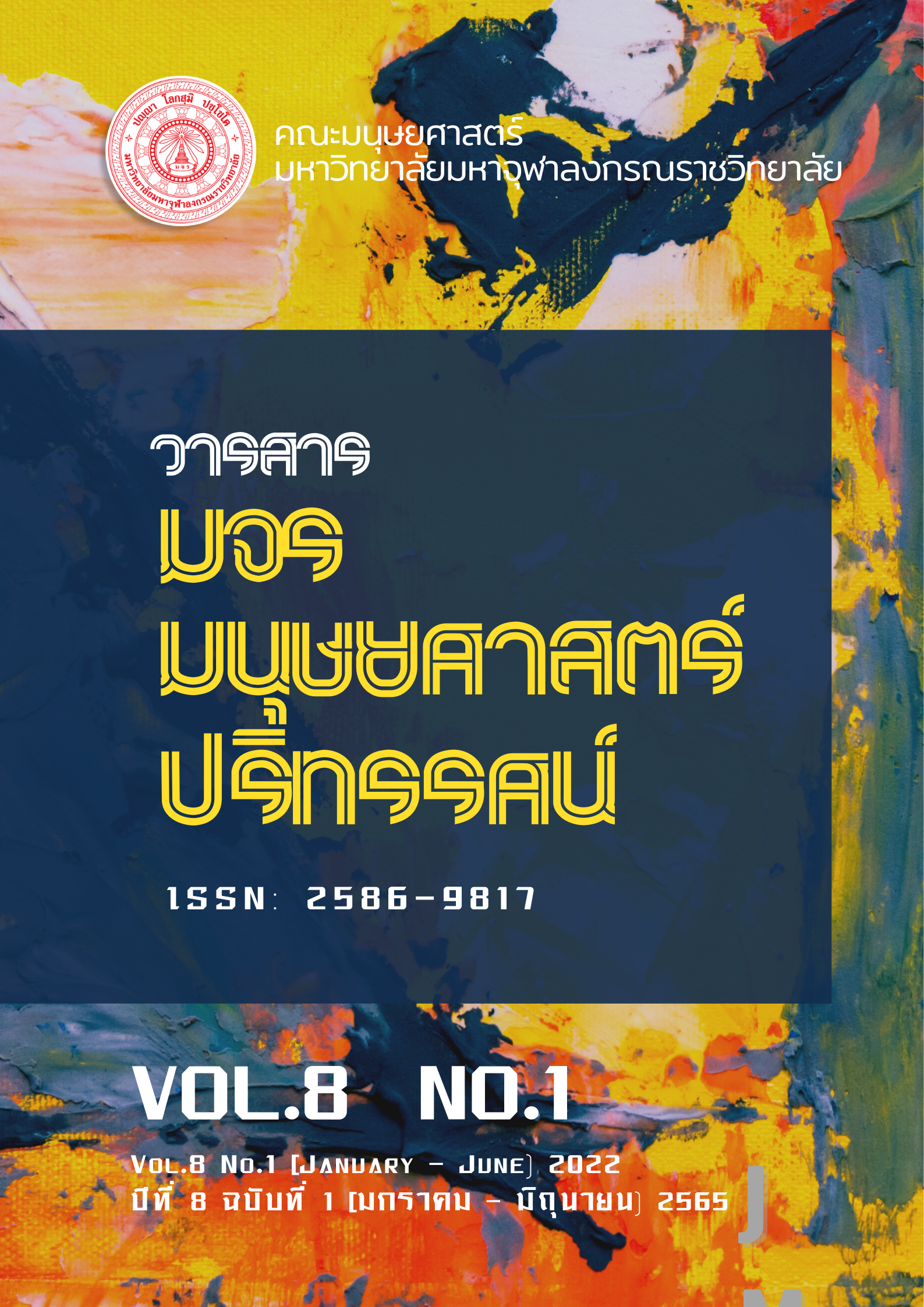แนวทางการเทศนาสาลิกาป้อนเหยื่อวัดประยุรวงศาวาส
คำสำคัญ:
การเทศนาธรรม, สาลิกาป้อนเหยื่อ, วัดประยุรวงศาวาสบทคัดย่อ
เทศนา เป็นวิธีการเผยแผ่พระพุทธศาสนาที่พระพุทธเจ้าทรงถือปฏิบัติมาตลอดพระชนม์ชีพของพระพุทธองค์ และปัจจุบันการแสดงธรรมหรือเทศนาวิธียังคงเป็นหลักในการเผยแผ่พระพุทธศาสนาและธำรงรักษาพระพุทธศาสนาไว้ โดยมีเป้าหมาย คือ เพื่อประโยชน์และความสุขแก่ชนหมู่มาก ด้วยเหตุนี้ วัดประยุรวงศาวาส จึงรักษาหลักการและวิธีการเผยแผ่พระพุทธศาสนานั้นด้วยวิธีการเทศนาที่โดดเด่นตั้งแต่ต้นกรุงรัตนโกสินทร์จนถึงปัจจุบัน จนเป็นที่ประจักษ์ทั้งฝ่ายอาณาจักรและพุทธจักรที่ให้ความพึงพอใจกับการเทศนาลีลาสาลิกาป้อนเหยื่อที่มีเอกลักษณ์เฉพาะตนเป็นที่ชื่นชมประเพณีนิยม มีศาสนโยบายประจำสำนักว่า “ตกปลานอกบ้าน ประสานสิบทิศ ผูกมิตรทั่วหล้า บริหารปัญญา สาลิกาป้อนเหยื่อ” และวิธีการเทศนานั้นตรงตามหลักพุทธวิธีในการสอน 4 ประการ คือ สันทัสนา แจ่มแจ้งชัดเจน สมาทปนา จูงใจให้เกิดศรัทธา สมุตเตชนา แกล้วกล้ามั่นใจทำได้ สัมปหังสนา ร่าเริงเบิกบานสบายใจ รวมความว่า ขึ้นต้นให้ตื่นเต้นคือศีล เด่นชัดในตอนกลางคือสมาธิ ชี้ทางในตอนจบคือปัญญา
เอกสารอ้างอิง
มหาวิทยาลัยมหาจุฬาลงกรณราชวิทยาลัย. (2539). พระไตรปิฎกฉบับภาษาไทย ฉบับมหาจุฬาลงกรณราชวิทยาลัย. กรุงเทพฯ: โรงพิมพ์มหาจุฬาลงกรณราชวิทยาลัย.
ฐิติพงค์ สังเงิน. (2563). นวัตกรรมและเทคโนโลยีสารสนเทศทางการศึกษา. สืบค้นเมื่อ 23 พฤศจิกายน 2564, จาก https://www.gotoknow.org/posts/674925.
พระธรรมโกศาจารย์ (ประยูร ธมฺมจิตฺโต). (2551). ตำนานสาลิกาป้อนเหยื่อ. นนทบุรี: หจก.เชน ปริ้นติ้ง.
พระพรหมบัณฑิต (ประยูร ธมฺมจิตฺโต). (2558). พระธรรมเทศนา 61 กัณฑ์. กรุงเทพฯ: หจก.สามลดา.
“________”. (2562). เอกสารประกอบการบรรยายหลักสูตรวิชาการเทศนา รุ่นที่ ๑ ทุนเล่าเรียนหลวง. กรุงเทพฯ: วัดประยุรวงศาวาส.
“________”. (2562). 190 ปี วัดประยุรวงศาวาสวรวิหาร. กรุงเทพฯ: อัมรินทร์พริ้นติ้ง แอนด์พับลิชชิ่ง จำกัด (มหาชน).
พระมหาโพธิวงศาจารย์ (ทองดี สุรเตโช). (2563). วิธีเทศนา (พิมพ์ครั้งที่ 4). กรุงเทพฯ: บริษัทปัญญามิตรการพิมพ์.
มหาวิทยาลัยมหาจุฬาลงกรณราชวิทยาลัย. (2555). พุทธวิธีการสอน. กรุงเทพฯ: โรงพิมพ์มหาจุฬาลงกรณราชวิทยาลัย.
วศิน อินทรสระ. (2545). พุทธวิธีในการสอน (พิมพ์ครั้งที่ 4). กรุงเทพฯ: โรงพิมพ์เม็ดทราย.
สมเด็จพระพุทธโฆษาจารย์ (ป. อ. ปยุตฺโต). (2564). พจนานุกรมพุทธศาสตร์ ฉบับประมวลธรม. กรุงเทพฯ: โรงพิมพ์บริษัท สหธรรมิก จำกัด.
สมเด็จพระมหารัชมังคลาจารย์ (ช่วง วรปุญฺโญ), พระธรรมโกศาจารย์ (ประยูร ธมฺมจิตฺโต), พระราชธรรมวาที (ชัยวัฒน์ ธมฺมวฑฺฒโน) และพระราชปฏิภาณกวี (บุญมา อาคมปุญฺโญ). (2553). พระนักเทศน์ เฉลิมพระเกียรติ 84 พรรษา. กรุงเทพฯ: หจก.สามลดา.
สุชีพ ปุญญานุภาพ. (2524). ศาสนาเปรียบเทียบ. กรุงเทพฯ: มหาวิทยาลัยรามคำแหง.
องค์การเผยแผ่วัดประยุรวงศาวาส. (2548). ศิลปะการเทศนา. กรุงเทพฯ: หจก.สามลดา.
“________”. (2549). วิชาการเทศนา. กรุงเทพฯ. หจก.สามลดา.
Matlin.M.W. (1993). Psychology. U.S.A.: Halt, Rinchat and Winston,Inc.

ดาวน์โหลด
เผยแพร่แล้ว
รูปแบบการอ้างอิง
ฉบับ
ประเภทบทความ
หมวดหมู่
สัญญาอนุญาต
ลิขสิทธิ์ (c) 2022 วารสาร มจร มนุษยศาสตร์ปริทรรศน์

อนุญาตภายใต้เงื่อนไข Creative Commons Attribution-NonCommercial-NoDerivatives 4.0 International License.





